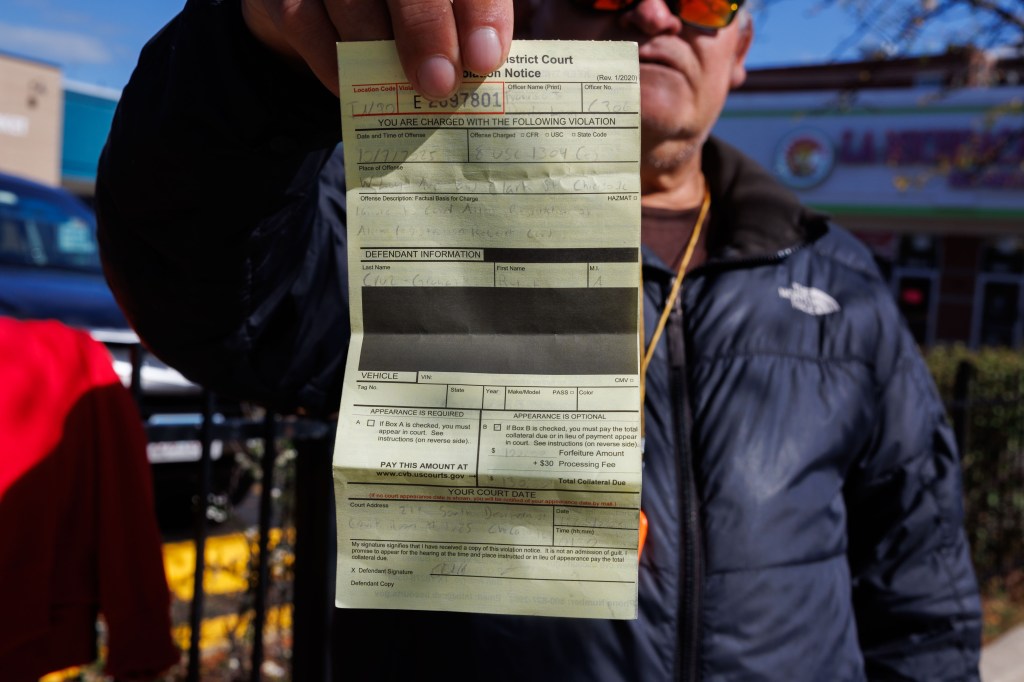Rueben Antonio Cruz was sitting with a friend in Rogers Park when ICE agents pulled up onto the street.
The immigration officers stopped their truck and went straight after them on Oct. 9, Cruz told the Tribune.
“They asked us if we have papers. I said I do but I don’t have them on me,” Cruz, a 60-year old man with heart problems originally from El Salvador, recalled in Spanish.
The agents stood Cruz up, put him in their truck, drove around in circles, and asked questions, he said.



Its true that there’s no way to enforce a law like that directly, and I don’t think that I agree with the requirement to carry documents at all times, same as you.
There is some use for laws that are not directly enforceable, though, just not in this case. For example, a government may reasonably want to limit citizens’ ability to operate a vehicle carrying a hazardous chemical. They may not be able to justly stop him and check for things with no reason, but if that is discovered because he got in a wreck, they can then punish the illegal transport crime.
I know its often repressive or at least unhelpful to make laws that aren’t directly enforceable, but there is some room for them. It is important to disallow legal overreach of law enforcement trampling civil liberties trying to enforce those laws like you pointed out, though. That’s something that my country (USA) unfortunately has a checkered history with, as have a lot of others.
ETA: To be clear, making it illegal for a person to not physically have something at all times seems patently absurd, regardless of how loosely enforced. All of the reasonable requirements of being a legal resident are met by simply being registered with the government of the country you are visiting.